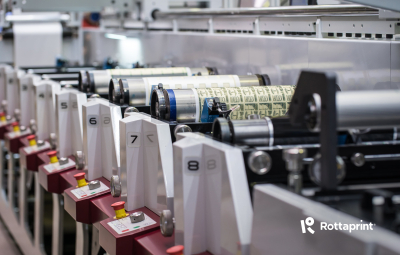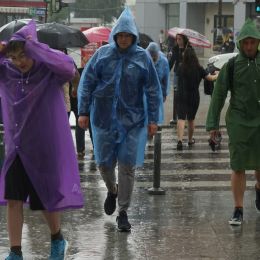The subprime bubble that burst in United States in 2008 has spread to Europe and its effects are now felt in Romanian market as well.
Whether it’s a crisis of capitalism or a crisis of a system that furthered away from the fundamental principles of capitalism, the last three months have fuelled panic and fear amongst players and analysts.
Wall-Street newswire polled managers of all market segments and top investment analysts in an attempt to review the most relevant lessons to take from financial crisis that triggers serious and unprecedented events.
The global financial crisis fed broad-band volatility in Romanian financial market denting both stock market and currency market. Bucharest stock exchanges collapsed on October 8, the board being forced to shut down session for the entire day, and in a spiraling chain reaction, Sibiu stock market took a similar measure. The effects started to take shape in the currency market where the national currency fell against euro to 4 units/euro, lawmakers being forced to intervene.
Governor of National Bank of Romania said the banking system was stable, as foreign banks that hold stakes in Romanian market were unable to withdraw money.
2. Bankruptcy of Lehman Brothers
In one of the most dramatic days that crippled the architecture of Wall Street, September 15 2008, Bank of America accepted the buyout of Merrill Lynch for roughly 50 billion dollars, in an effort to avoid a deepening financial crisis, while Lehman Brothers was moving forward to collapse.
“I've been in the business 35 years, and these are the most extraordinary events I've ever seen”, said Peter Peterson, co-founder of the private equity firm the Blackstone. What were the insights and lessons taken by investment managers in Romania?
The humiliating events that reshaped the architecture of Wall Street marked a new important chapter in a horrific year, when once-proud financial institutions have been brought to their knees as a result of hundreds of billions of dollars losses due to bad real estate investments and mortgage deals.
3. Government takes control over mortgage giants. State’s intervention in economic landscape
After the failure of Lehman Brothers, and buyout of Merrill Lynch by Bank of America and nationalization of American International Group (AIG), the American government issued “Economic Stabilization Act” designed to rescue financial system from total collapse.
In Europe, several governments have announced rescue plans for the banking system, that consist in pumping 1.500 billion euros in the recapitalization of banking sector or guaranteeing the financing. The measure comes as a response to banks’ dramatic liquidity shortages.
-February 17- UK is besieged by authorities
-September 7 – US Treasury decides to take full control over troubled mortgage giants Fannie Mae and Freddie Mac
- September 28 – Fortis insurer receives financial aid from Benelux
- September 30 – Dexia Bank is nationalized by French and Belgian authorities
-October 8 – London announces a rescue plan that consists in a partial nationalization of banks.
4. The worst year for Bucharest Stock Exchange
The year 2008 will surely make history, as the events that trashed all doctrines and economic ideologies have established a new hierarchy of the world’s giants. Bucharest Stock Exchange was not avoided by crisis. Few months ago, investors were seeing their portfolios taking a nosedive, and brokers were experiencing fear, panic and unique moments.
The American capital market took its first falls in August, when central banks started pumping liquidities. The crisis started to spread like wildfire in all stock markets across the world, in BSE also. The plummets in the last part of the year influenced stock markets since day one, when “the January effect” was no worth betting on, for the first time in nine successive years.
5. Record economic growth in Q3
Third quarter economic growth that topped expectations was fuelled especially by the evolution of agriculture and high advance of construction industry.
In previous quarter of this year, Romania registered a 9.3% economic growth while first quarter report indicated an 8.8% increase against January-June 2007.
The last time when Romania registered economic growth around 9% was in 2004. National Prognosis Commission (CNP) said it expected a 9.1% annual economic growth, while the gross domestic product was estimated at 505 billion lei. In 2007, Romania’s GDP reached 404.7 billion lei, up 6% from a year earlier.
6. A volatile year for national currency
National currency was traded at 3.5915 – 3.6080 lei/euro in the early year deals, and now, towards the end of the year, it nears to 4 lei/euro threshold.
Insiders do not exclude the possibility of 4.2 lei/euro threshold, most likely for early 2009.
The shocking depreciation of the national currency down to 4 lei/euro, has fueled fear amongst the Romanian corporate leaders, especially those in import industry and individuals with loans in euro, forced to bear the burden of ever-growing interests rates.
7. Lending activity undergoes sharp slowdown
Loans granted to natural and corporate persons rose by 1.1% in November against prior month, whereas the annual growth pace of non-government credit has significantly slowed down for two successive months, down to 38.4% from 44.8% in October, according to data provided by BNR.
Insiders see the revision of lending regulation as vital action to unlock lending activity
Lending regulation will be modified as of January 2009, according to first-vice governor of BNR. However, Radu Ghetea, chairman of Romanian Association of Banks (ARB) is “not very optimistic” regarding the future decision of BNR on lending regulation.
8. Car industry falls to 1999 level
New car sales started their decline in May this year
Car industry fell to the lowest level in nine years, due to the financial crisis. Thus, the registrations for new cars in first 11 months this year dropped 53% from a year ago.
The main factors of the recent meltdown consist in the effect of the global downturn in Romania, namely toughened lending conditions, and massive entrances of used cars in the country, that benefited of low duties in December.
9. Real estate market hits deadlock
Romanian real estate market felt a glimpse of the financial crisis, prompting developers to abort construction of their real estate projects. A large percentage of the 8,000 housing units planned for delivery this year were put on the waiting list.
“The year had a forceful start. The first signs of the downtrend whipped into shape in early summer. Subsequently, more and more projects, whose delivery dates were established for the second half of the year, were put off. In parallel, starting with the second half of this year, the market of the old housing units began to take a nosedive on a monthly basis,” said Adrian Ghimpau, director of Coldwell Banker Affiliates Romania’s residential department.
According to Coldwell’s representative, we cannot yet estimate the exact number of housing units delivered this year, as it will be revealed in January 2009, most likely. Nevertheless, players can only forecast the number of units to be delivered in 2008.
Citeste si:
Calculator Salariu: Află câți bani primești în mână în funcție de salariul brut »
Te-ar putea interesa și:



















































































![HR [PLAY] Tech Workout - 11...](https://www.wall-street.ro/image_thumbs/thumbs/973/973fe0a3888d417feff63de42e814180-260x260-00-65.jpg?v=1713523656)









